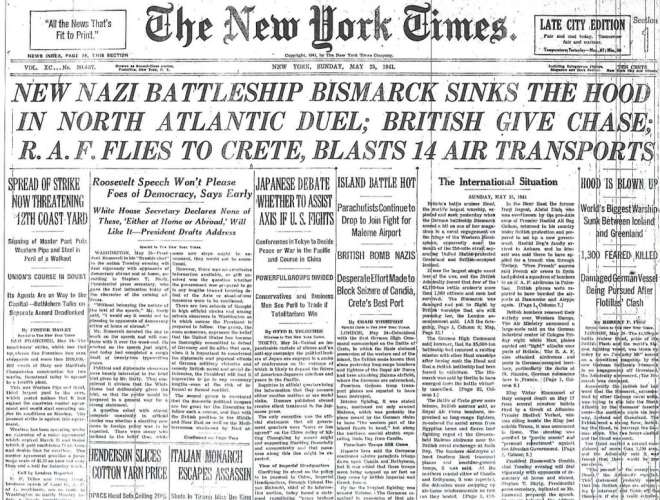This article is the final part in a series of four articles about the battleship Bismarck
May 25, 1941: No one in the British Admiralty office slept that night; the disappearance of the German battleship from right under their noses was a tough pill to swallow. The British public would never forgive this slight, especially after the loss of their beloved Hood. Churchill had instructed Admiral Dudley Pound to convey all updates directly to him. More than a tactical move, the search for the Bismarck became a prestige issue- the Hood needed to be avenged.
In the Atlantic, Bismarck was on course southeast towards Brest in occupied France. Lutjens had managed to shake off his pursuers, but tragically, he didn’t know of his success. He overestimated British radar capabilities, believing that while he had put some distance between the Norfolk and others, he was still on their radar. And so, inexplicably, he broke radio silence multiple times, sending information to the German headquarters about his intended route to Brest and requesting Luftwaffe air assistance. The code being used by Lutjens was similar to the one found aboard a captured U-Boat a few months earlier. This allowed British cryptologists at Bletchley Park to decode vital information. Most notable among these was Alan Turing, who broke the naval Enigma code.
Continue reading The Story of Bismarck (IV): Bismarck’s Knell




